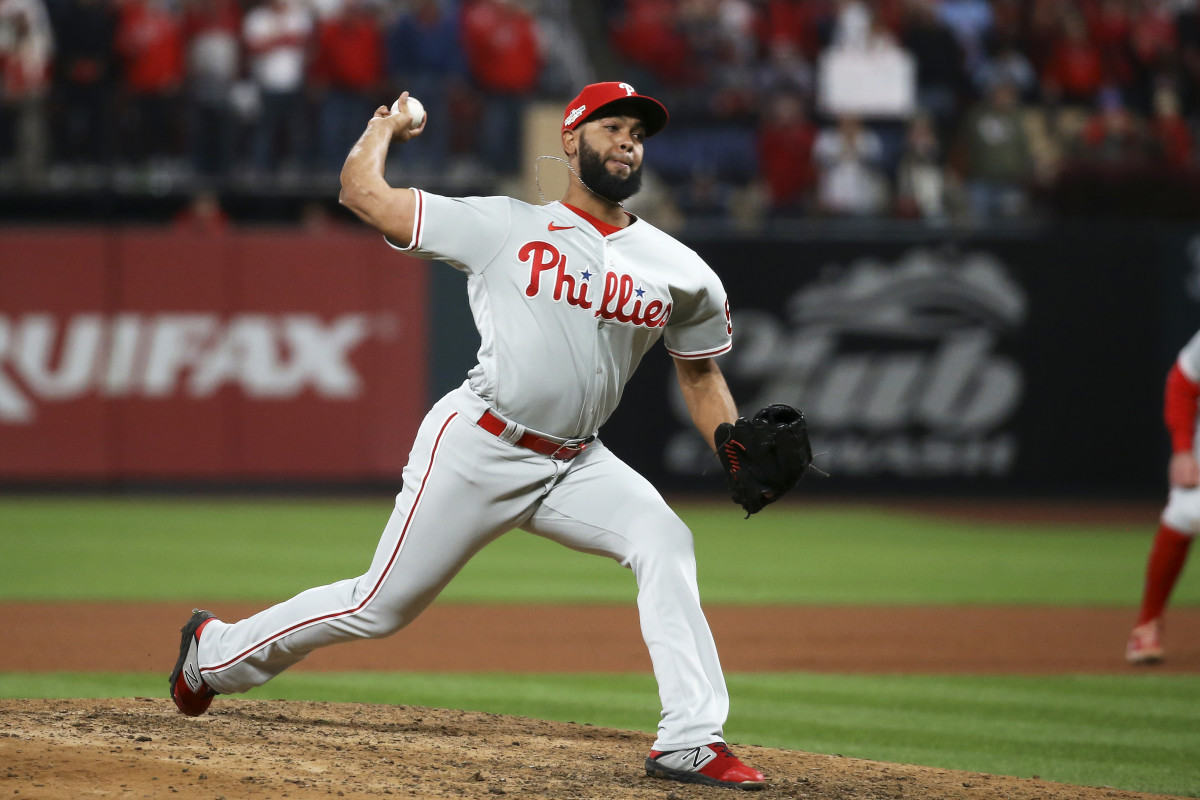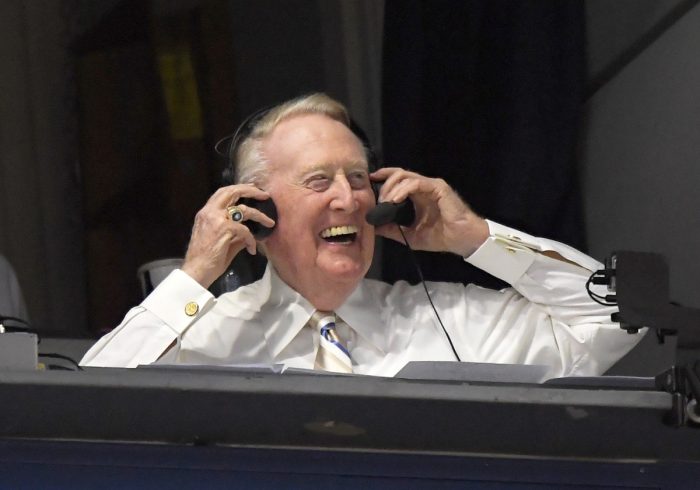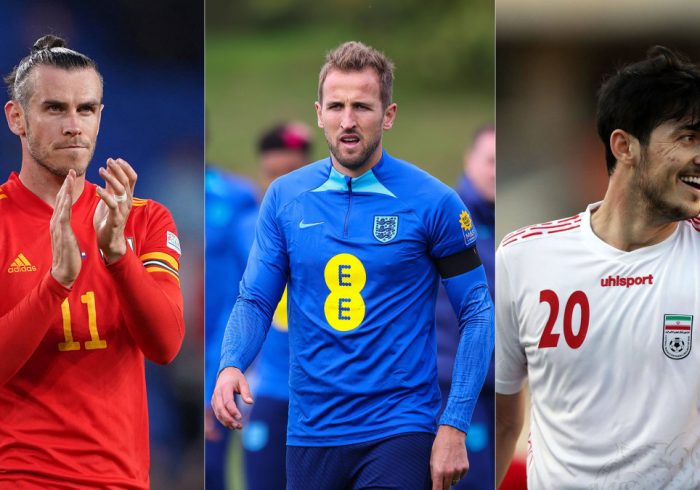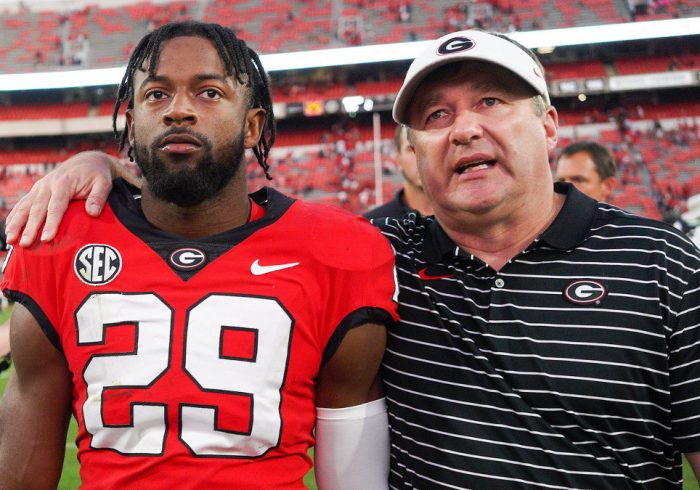In the visitors’ dugout in St. Louis, right after his team clinched a series win, Phillies manager Rob Thomson turned to catcher J.T. Realmuto. He needed to give the veteran backstop a heads up. The club was about to celebrate, but before they popped the champagne, the manager planned to ask how many games were left for them to win. He wanted Realmuto to be the one to give the answer: 11.
That was how many victories it would take to get from that wild-card win on Saturday to the end of a hypothetical World Series.
There were other players Thomson could have asked to deliver the answer: Some reasonable choices might have been one of the talented starters who led the team all year, Zack Wheeler or Aaron Nola, or the slugger who delivered the crucial home run in the second game, Bryce Harper. But Thomson has a soft spot for Realmuto’s place on the roster—“I’m an old catcher,” said the manager, a former minor-league backstop—and besides, he hoped to have more opportunities to ask this question later, with different players able to answer as the number of wins left got smaller. But for now? He’d stick with the catcher.
“You let everybody know,” Thomson told Realmuto, “We got 11 more to win.”
And he did.
It’s a reminder that the Phillies want to be here for the long haul. They know few people expected them to be here at all—not in early June, when Thomson was promoted to replace a fired Joe Girardi, not at the All-Star Break, when their playoff chances were roughly one in three, not even in the last few weeks of the season, when chances to clinch kept dancing just out of reach. But they’ve made it here anyway. And they weren’t content just to end their playoff drought, or to win one game, or even to take one series. They want to keep going, and they believe they can.
That’s led them to Atlanta for the NLDS. The Phillies realize they’re the underdogs against the defending champs, the Braves, who are quite possibly even better right now than they were when they won it all last year. Atlanta won the season series 11 games to 8. But the Phillies say this next round will be different.
Here are three questions that will define the series:
Is the Phillies’ bullpen up to the task?
Dominguez had a brutal final month of the regular season (11.57 ERA in eight games), after he had 1.64 ERA in 46 games over the first five months.
Scott Kane/AP
The Phillies are set up for success whenever they start Wheeler or Nola. That was ideal for a best-of-three series like the wild card. But this series is best-of-five, and they’ll have to use some other options here, including Game 1 starter Ranger Suárez and potentially, at some point, Kyle Gibson. Which makes Philadelphia’s bullpen all the more important.
This relief corps has been up and down all year. They’re anchored by José Alvarado and Seranthony Dominguez—but other reliable options are scarce, and even those two can be inconsistent. In Game 1 of the wild-card series, Alvarado gave up his first home run since July, getting saved from a loss only by a bizarre ninth-inning meltdown by the Cardinals. In Game 2, meanwhile, Philly got a strong performance from Dominguez, which was encouraging after he had scuffled somewhat through the end of the season.
This Braves offense is too good not to pounce on any mistakes. If the Phillies want to be competitive here, they’ll need to hope for the best version possible of their bullpen, especially in games not started by their aces.
How much will the Braves get from Spencer Strider?
Strider went 11–5 with a 2.67 ERA and 202 strikeouts in 131 2/3 innings this season.
Dale Zanine/USA TODAY Sports
First, let’s be clear: The top of the Braves’ rotation is solid even without Strider. Max Fried, Kyle Wright and Charlie Morton? That can be a pretty fearsome one-two-three punch. But all in all, Atlanta would much rather have Strider, too. (As if to drive home the point, the team signed him to a six-year, $75-million extension on Monday.) So what will they get this week from the rookie starter?
Strider missed the end of the regular season with an oblique injury and last appeared in a game on Sept. 18. He threw off a mound again this weekend and told reporters on Monday that he feels “great.” But Braves manager Brian Snitker declined to share much detail about whether the rookie is close to fully healthy or how he might be used in the NLDS. “We anticipate him being really good because he was yesterday in the ‘pen,” Snitker said. “And we’re still kind of mulling over what’s the right thing for us and him and how to use him.”
The 23-year-old can be a difference-maker in any role: Whether it’s as a starter or out of the ‘pen, on a tight pitch count or fully ready to go, Strider should give the Braves an advantage any time he’s on the mound. Yes, there are plenty of other good pitchers on this roster. But a healthy Strider could make things a whole lot easier for Atlanta.
What will the Phillies get from Bryce Harper?
Despite his rough time upon returning from injury. Harper still finished the year with a 145 OPS+.
Jeff Curry/USA TODAY Sports
The end of the regular season was frustrating for Harper. After a hot start to the year, a broken thumb sidelined him for all of July and most of August, and even in his return, he’s been dealing with an elbow problem. The struggle showed in his stats: A 76 OPS+ in September and early October. While there are plenty of other players in this lineup who are capable of slugging—Kyle Schwarber, Rhys Hoskins, Nick Castellanos—it’s been difficult not to be able to count on Harper.
But one swing in Game 2 of the wild-card series in St. Louis gave the team some hope. Harper provided the go-ahead home run, and in doing so, he looked like something close to his regular self.
“What we’re waiting for is for him to go on one of those streaks where he’s hitting everything, and whether it gets there or not, I don’t know,” Thomson said of Harper after Game 2. “But if he gets there, yeah, it’s going to be special.”
It was just one home run. But the Phillies are going to want any extra bit of offense they can get against a Braves pitching staff that’s this good. If Harper is beginning to get his swing back? They’ll be in a much better space.
More MLB Coverage:
• Division Series Predictions: Expert Picks for ALDS and NLDS
• Inside the Mets’ Clubhouse After the End of Another Fruitless Season
• The Biggest Pitching Trends and Oddities of the MLB Postseason
• Joe Musgrove Cl-EAR-ly Wasn’t Cheating



